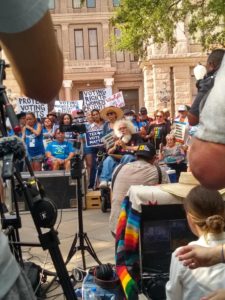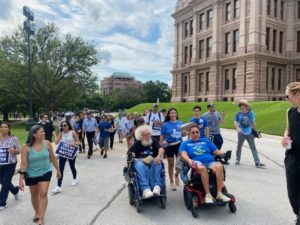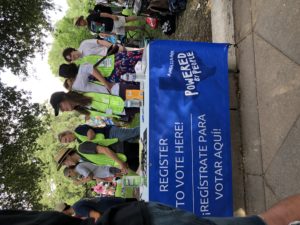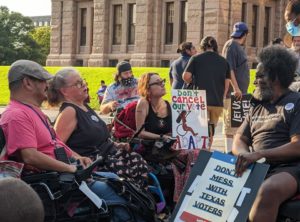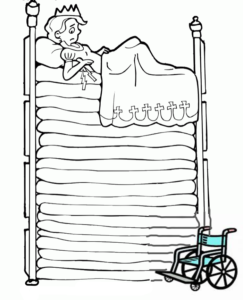June 22nd is the 22nd Anniversary of the Supreme Court’s 1999 landmark Olmstead decision.
ADAPT of Texas, a statewide disability rights organization, is celebrating this anniversary which we fought so hard to see. “Freedom, Liberation, Integration and Independence” are how ADAPT of Texas members describe the Olmstead decision.
Based on the integration requirement in the Americans with Disabilities Act (ADA), the Olmstead decision said that people with disabilities have the right to live in “the most integrated setting.” Just because a person needs support services does not mean the state can closet them away in nursing homes, state developmental disability (known in Texas as State Supported Living Centers) or other institutions.

Lois Clark and Elaine Wilson were two Georgia women who had sat in institutions for years waiting on wait-lists for community services. They sued saying the state was paying for them to be stuck in institutions and could therefore afford to provide them services in the community.
Though they were from Georgia, they could well have been from Texas as thousands of Texans were, and many still are, in this same situation.
In Texas, ADAPT fought for and in part using the Olmstead decision, won a policy called Money Follows the Person which has led to thousands of Texans getting out of nursing homes, and some state supported living centers and moving back into the communities they came from.
President George W Bush, with a push from ADAPT, took the experience in Texas and carried it forward to the national level. Though Medicaid still has an “institutional bias,” people with disabilities of all ages now have a choice to live in the community with the supports and services they need.
We still have more work ahead as there are over 100,000 Texans waiting in the community for services and supports; however, we should celebrate the victories along the way.
For more background on Olmstead and a link to related resources click here



